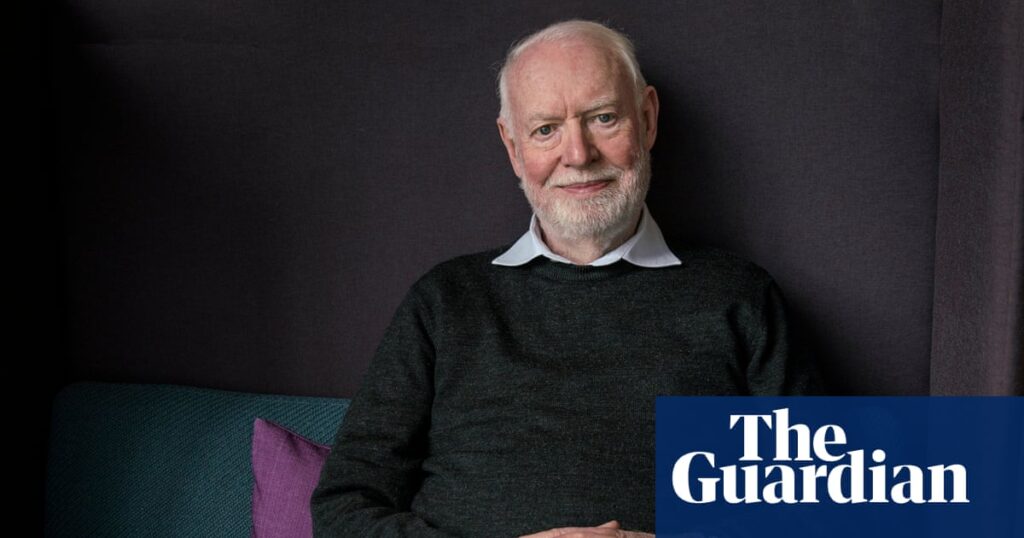
David Stratton, the legendary film critic and cinephile, has passed away at the age of 85. Known for his unparalleled passion for cinema, Stratton viewed and critiqued over 25,000 films throughout his career. His journey began as a childhood habit of watching one new film every day, which evolved into a career that spanned six decades and significantly influenced the Australian film industry.
Stratton’s love for cinema was ignited as a seven-year-old boy in England, captivated by the Australian film “The Overlanders.” This early fascination with Australian cinema would eventually transform his life. In 1963, he left England as a “10-pound Pom” to explore the Australian outback, only to find himself drawn to the burgeoning film scene in Sydney. It was here that his career would take root, beginning with his involvement in the Sydney Film Festival.
The Sydney Film Festival and the Rise of Australian Cinema
Stratton’s tenure as the director of the Sydney Film Festival, from 1966 to 1984, marked a pivotal period in the development of Australian cinema. At the time, Australia lacked a recognized film industry, and Stratton’s efforts to launch short film competitions played a crucial role in discovering and promoting new talent. By the 1970s, with federal funding in place, Australian cinema experienced a new wave of creativity and international recognition.
Under Stratton’s leadership, films like “Picnic at Hanging Rock,” “Mad Max,” and “Newsfront” gained international exposure, showcasing the unique qualities of Australian storytelling. One memorable event during his directorship involved closing off a city street and bringing in 40 sheep for a shearing demonstration by actor Jack Thompson at the opening night of “Sunday Too Far Away.”
“[Stratton] was a warrior in the cause of finding an audience for Australian films, which was, and remains, difficult,” said writer and broadcaster Phillip Adams.
Championing International Cinema and Overcoming Censorship
Beyond his dedication to Australian films, Stratton was a fervent advocate for international cinema. His programming of Soviet films in the late 1960s led to surveillance by the Australian Security Intelligence Organisation, an experience he later described as “a complete and staggering waste of time and money.” This incident highlighted his commitment to broadening the cinematic horizons of Australian audiences.
Stratton was also vocal against the “draconian censorship” laws of the 1960s, which he believed targeted films of significant cultural importance. His efforts to challenge these restrictions were part of a broader mission to enrich the film landscape in Australia.
Television Fame and Literary Contributions
Stratton became a household name as the co-host of “The Movie Show” on SBS, and later “At The Movies,” alongside Margaret Pomeranz. Their dynamic and often humorous exchanges over film reviews earned them a devoted following, with audiences declaring themselves either “a David” or “a Margaret.”
His literary contributions include several books on his favorite films and an autobiography, “I Peed on Fellini,” which recounts his colorful encounters in the film industry. Stratton’s reviews for the US magazine Variety further cemented his reputation as a leading voice in film criticism.
A Legacy of Influence and Recognition
David Stratton’s influence extended beyond criticism; he served on juries at prestigious film festivals worldwide, including Berlin, Montreal, and Cannes. His contributions to cinema were recognized with numerous honors, including being named a Member of the Order of Australia and a Commander of the Order of Arts and Letters in France.
Stratton’s life was marked by a deep love for cinema and an unwavering commitment to its advancement. He lived in the Blue Mountains with his wife, Susie Craig, maintaining a private life away from the public eye. His legacy continues to inspire filmmakers and cinephiles alike, ensuring that his impact on the film industry will be felt for generations to come.





